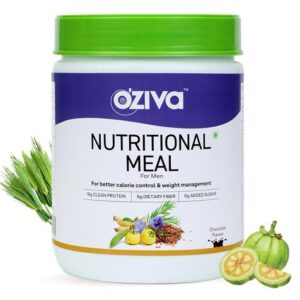A protein-rich diet, protein supplements, protein bars – we have heard it all. It has now sort of become like a race that we don’t understand how to proceed. Where to begin with when it comes to whey protein? With so many options on the market today it is difficult to understand which whey protein powder to opt for and how to match it with one’s needs. Hence it’s important to first understand the basics of our requirements before we opt for one.
How much protein do men need?

The recommended dietary allowance (RDA) for protein in an average adult is 0.8 grams/kg body weight. However this is the minimum requirement so as to ensure we don’t fall sick. It’s not the exact amount required to fulfil the nutritional requirements. That will vary as per the physical activity levels, age and overall health.
An average man needs 1-1.2gms of proteins per kg body weight for maintenance. Someone doing high intensity workout training requires 1.5-1.8 gms of proteins per kg of body weight. An athlete requires 2 grams/kg body weight or sometimes even more as per their goals. In the end each individual has different requirements. It’s important to fulfil the same so as to avoid nutritional deficiency, muscle loss and many other adverse effects.
Benefits of whey protein:
The numerous benefits of whey protein go beyond just its value for being nutrient-rich. Here is a list of various roles that whey protein can play in the body. Whey protein outsmarts any other sources of protein known to mankind as an excellent protein source:
- Muscle building: Several studies referred to whey protein as the ‘fast’ protein. Its ability to quickly provide nourishment to muscles and induce faster muscle protein synthesis makes it the best choice for muscle building. It has a high concentration of branched chain amino acids (BCAAs). These are important for their role in the maintenance of tissue and prevention of catabolic actions during exercise, it helps in building muscles.
- Muscle repair and regeneration: Whey protein is a complete, high-quality protein with a full spectrum of AAs including essential AAs (EAAs). It also has BCAAs which are important in tissue growth and repair. This makes whey protein more effective than other proteins for repairing exercise-related muscle damage and building bigger, stronger muscles.
- Weight management: When aiming to lose or maintain weight, whey protein improves body composition with its ability to increase metabolism and reduces waist circumference when combined with adequate and the correct type of exercise regimen.
- BCAAs: BCAAs are important for athletes. They metabolise directly into muscle tissue and these are the first ones used during periods of exercise and resistance training. Whey protein provides the body with BCAAs to replenish decreased levels and start repairing and rebuilding lean muscle tissue.
- Heart health: Whey protein is known to decrease low-density lipoprotein (LDL) cholesterol, the one important culprit of heart diseases and hence helps to maintain cardiovascular health. It also lowers blood pressure by targeting the main enzyme in the mechanism i.e ACE.
- Immunity: Whey protein is a rich and balanced source of the sulphur amino acids that serve a critical role as antioxidants. It contains three to four times more bioavailable cysteine which enhances production of glutathione needed for various immune functions.
- Bone health: It increases osteoblast differentiation and forms new bone formation and also decreases bone breakdown.
Types of whey protein:
You could categorise whey protein mainly into 3 types depending on the manner of their processing and their nutritional content.
- Whey Protein Concentrate:
Whey protein concentrate can vary widely in their protein, lactose and fat content. This whey contains 70-80% of proteins while remaining 20-30 % is fat and carbohydrates. Generally for beginners, whey concentrate is the go-to option as it retains naturally occurring nutrients in whey containing more biologically active components.
2. Whey Protein Isolate (WPI)
Isolates are the purest protein source available. This variant contains 85-90% of proteins while the remaining 10-15 % is fat and carbohydrates. It contains less fat and carbohydrates as compared to whey concentrate and lesser beneficial nutrients as well.
3. Whey Protein Hydrolysate (WPH)
Hydrolysate is the easiest to digest as compared to others because its long chain or proteins (peptides) break down into shorter peptides readily. This whey is a pre-digested form of whey as it undergoes extra processing for the hydrolysis. However due to the extra processing and exposure due to heat, acids and enzymes some of the naturally occurring benefits are diminished.
OZiva Protein & Herbs for Men
If one is looking for improving general fitness and at the same time ensuring to meet the nutritional requirements then OZiva Protein & Herbs is one of a kind. It’s a combination of whey concentrate & isolate – cold processed whey concentrate rather than denatured (heat treated) which ensures there is no loss of nutrients while processing.
It has 15 added Vitamins and minerals in it which reduces chances of micronutrient deficiencies. It also has additional herbs added to it like Maca, Moringa, Wheatgrass, Ashwagandha, Musli, Brahmi and Chlorella which ensure better Recovery ,Energy & Stamina.
The herb Moringa promotes heart health, helps lower cholesterol & blood pressure, improves energy levels, hence its recommended for patients with high cholesterol as well. Brahmi helps to regulate blood sugars and hence people with diabetes can take it too.
Overall all age groups above 14 years can take it (except people with medical conditions like kidney stones need to consult a doctor) for general fitness, weight loss as well as weight gain depending on the diet paired with it.
The dosage is 1 Scoop in 200-250 ml milk or water as post-workout protein shake, or it can be taken as breakfast meal replacement by adding 1-3 tsp oats, 1 fruit 3-4 nuts, ½ tsp chia seeds to make a porridge/pudding of your choice).
Read more on whey protein here in our ultimate guide to whey protein.
Last modified: October 29, 2022


